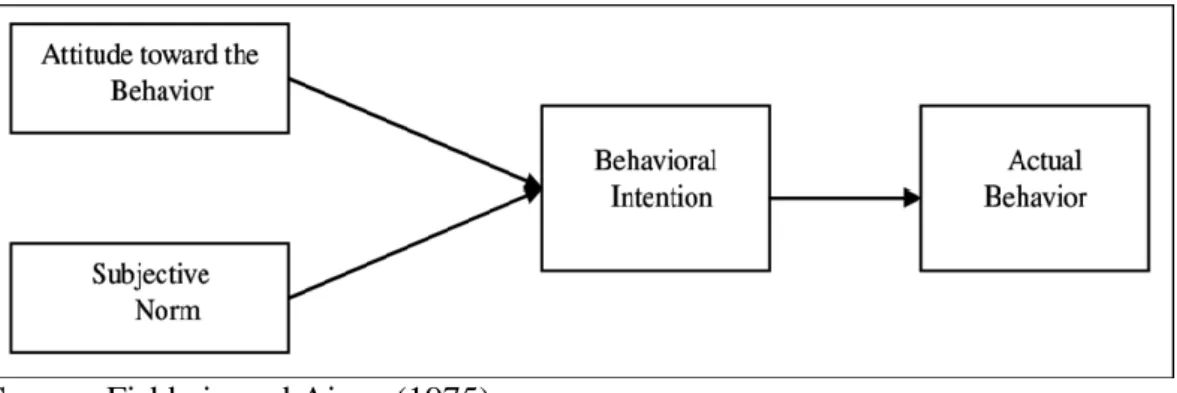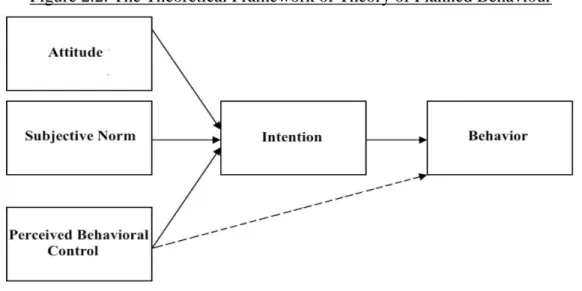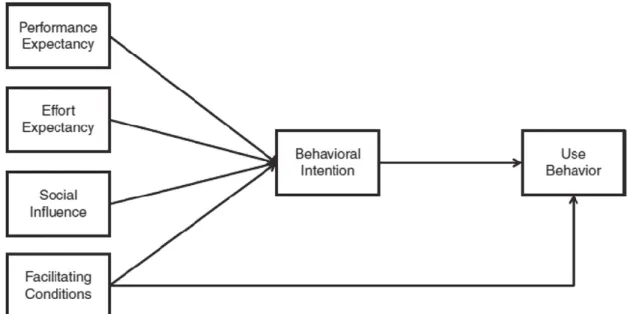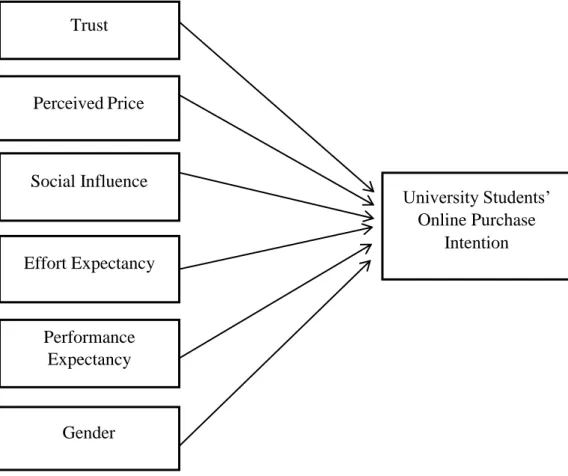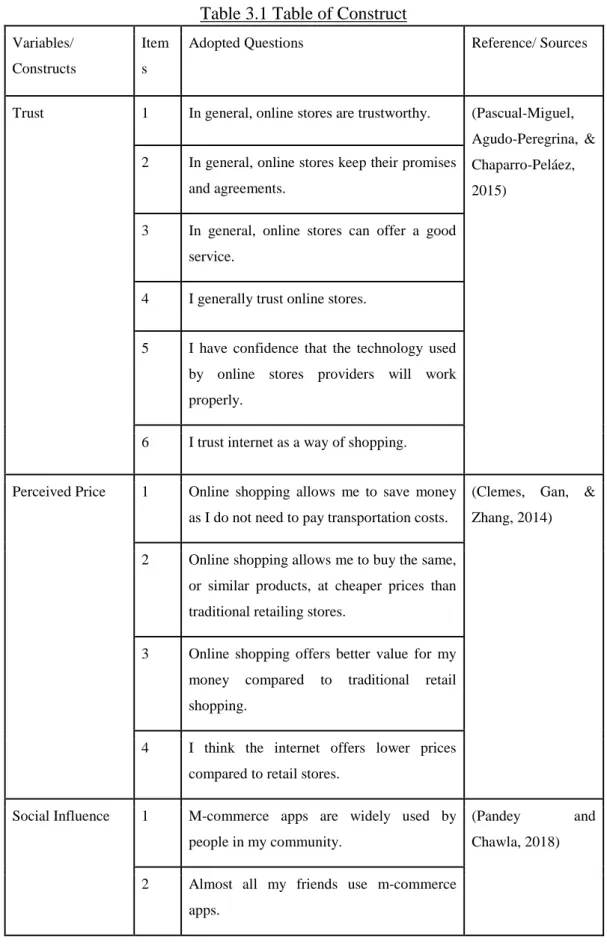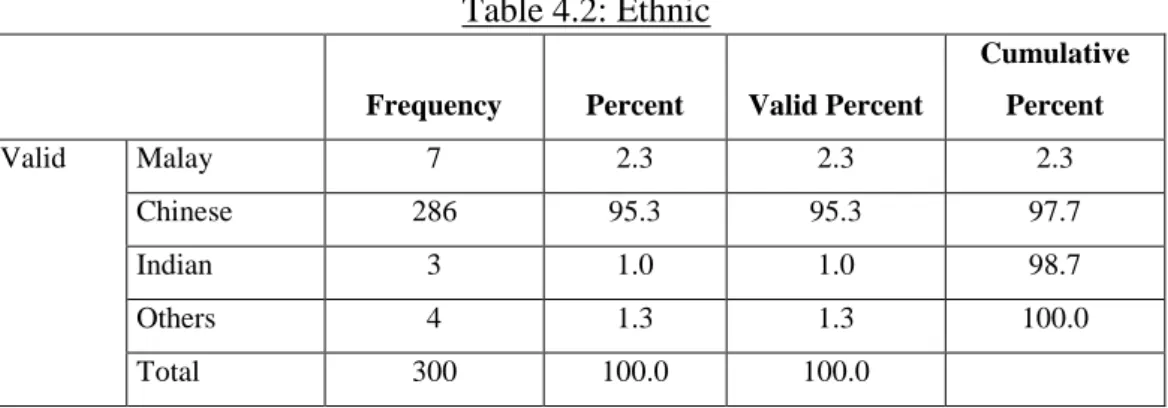First of all, we would like to express our deepest gratitude to our supervisor Mr. Tang Kin Leong for his valuable guidance, advice and encouragement throughout the process of carrying out this research project. There are a number of people without whom this thesis might not have been written, and we would like to dedicate this research to them. Finally, we would like to dedicate this research paper to the public who actively participated and provided us with valuable information to complete this research.
RESEARCH OVERVIEW
- Introduction
- Research Background
- Problem Statement
- Research Objectives
- General Objectives
- Specific Objectives
- Research Question
- Hypotheses Of The Study
- Significance Of The Study
- Chapter Layout
- Conclusion
H1: There is a significant positive relationship between trust and online purchase intention of Malaysian university students towards Korean cosmetic products. H3: There is a significant positive relationship between social influence and Malaysian university students' online purchase intention towards Korean cosmetic products. H4: There is a significant positive relationship between expected effort and online purchase intention of Malaysian university students towards Korean cosmetic products.
LITERATURE REVIEW
- Introduction
- Related Theoretical Framework
- Theory Of Reasoned Action
- Theory Of Planned Behaviour
- Unified Theory Of Acceptance And Use Of Technology
- Review Of Literature
- Online Purchase Intention
- Trust
- Perceived Price
- Social Influence
- Effort Expectancy
- Performance Expectancy
- Proposed Conceptual Framework
- Hypothesis Development
- Trust
- Perceived Price
- Social Influence
- Effort Expectancy
- Performance Expectancy
- Gender
- Conclusion
By doing so, the result of this study will serve as a guide for marketers or online retailers to understand consumer needs. In addition, future researchers will also gain insights from this study as there is limited research from previous studies investigating Malaysian online purchase intention towards Korean cosmetic products, especially from the perspective of Malaysian university students. With the existence of this study, future researchers can use this research to further study on similar topics.
METHODOLOGY
Introduction
Research Design
- Quantitative Research
- Descriptive Research
Sampling Design
- Target Respondents
- Sampling Technique
- Sample Size
Data Collection Method
- Primary Data
Research Instrument
- Questionnaire Design
- Pilot Test
Construct Measurement
- Measurement Scale
- Origins Of Construct
Data Processing
- Questionnaire Checking
- Data Editing
- Data Coding
- Data Transcribing
- Data Cleansing
Data Analysis
- Descriptive Analysis
- Reliability Test
- Pearson’s Correlation Coefficient Analysis
- Multiple Linear Regression Analysis
- Independent Group T-Test
Conclusion
DATA ANALYSIS
Introduction
SSPS software version 20.0 was used to analyze and summarize all results obtained from data from 300 respondents. It will be followed by an internal reliability test analysis which analyzes the internal consistency reliability of the variables. Then, inferential analysis will be used to examine each individual variable and the relationship between all variables.
Descriptive Analysis
- Respondents’ Demographic Profile
- Gender
- Ethnic
- Education Level
- Respondents’ General Information
- Online Purchase Experience
- Frequency Of Purchase Via Internet (During The Past Six Months) . 50
- Amount Spend On Each Korean Cosmetics Product
- Purchase Experience On Various Online Merchant
- Intention To Purchase Korean Cosmetics Online In Future
- Familiarity Towards Various Online Merchants
As referred to Table 4.2 and Figure 4.2, the majority of participating respondents were Chinese, contributing 95.30% or 286 out of 300 respondents. Meanwhile, only 13.30% or 40 respondents have no experience of buying things online. Meanwhile, 137 or 45.70% of the total respondents have no experience of buying Korean Cosmetics online before.
This question had to be answered by those 123 respondents who have experience in purchasing Korean cosmetics through online. Among the 123 respondents, 18.70% or 56 out of 300 respondents spent less than RM100 to buy Korean cosmetics online. Finally, there are only 4 or 1.30% of the respondents who spent more than RM300 to buy each Korean Cosmetics product online.
Next, 15.30% or 46 respondents have experience buying Korean cosmetics from Innisfree online stores, followed by Althea and Etude House online stores, which were chosen by 11.70% or 35 respondents and 8.30% or 25 respondents, respectively. As shown in Table 4.9 and Figure 4.9, 58.30% or 175 out of 300 respondents intend to purchase a Korean cosmetic product online in the future. Meanwhile, 41.70% or 125 respondents do not intend to buy Korean cosmetics online in the future.
Furthermore, 56.30% or 169 respondents are aware of Etude House as an online Korean Cosmetics dealer.
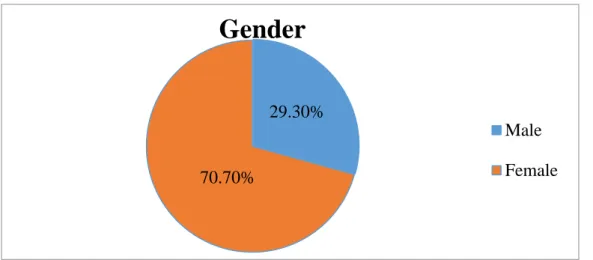
Scale Measurement
- Internal Reliability Test
On the other hand, effort expectancy, trust and perceived price have alpha values of and 0.845, indicating a very strong relationship. Finally, social influence with 4 items tested has an alpha coefficient of 0.765, which represents the lowest internal consistency reliability, but still shows strong correlation.
Inferential Analysis
- Pearson Correlation
- Multiple Regression Analysis
- Hypothesis Testing
- Independent Sample T-Test
PP = Perceived Price SI = Social Influence EE = Effort Expectancy PE = Performance Expectancy OPI = Online Purchase Intention Source: Developed for the research. Furthermore, there is a positive relationship between perceived price (0.104), social influence (0.424), effort expectancy (0.040) and performance expectancy (0.423) towards online purchase intention. Online purchase intention is then influenced by performance expectancy, perceived price, trust and effort expectancy.
Thus, the relationship between trust and online purchase intent was not supported with a 95% confidence interval. H2: There is a significant positive relationship between perceived price and university students' online purchase intention for Korean cosmetic products. H3: There is a significant positive association between social influence and the intention of online purchases of Korean cosmetics by university students.
H4: There is a significant positive relationship between effort expectancy and online purchase intention of university students toward Korean cosmetic products. H5: There is a significant positive relationship between performance longevity and online purchase intention of Malaysian university students towards Korean cosmetic products. In short, among the five independent variables, only social influence and performance expectancy had significant influence towards online purchase intention.
In contrast, there is a significant difference between men and women in terms of trust, perceived price, effort expectation and performance expectation, and online purchase intent.

Conclusion
In conclusion, the results showed no significant gender difference on social influence as the p-value is higher than 0.05.
DISCUSSION, CONCLUSION AND IMPLICATIONS
Introduction
Summary Of Statistical Analysis
- Descriptive Analysis
- Scale Measurement
- Inferential Summary
- Pearson Correlation Analysis
- Multiple Regression Analysis
- Independent Sample T-Test
Of all variables, the variable with the highest Cronbach's Alpha value is the dependent variable, online purchase intent with an alpha coefficient of 0.921. According to SPSS data, all independent variables have a significant positive relationship with the dependent variable, online purchase intent. Performance expectancy with an r-value of 0.744 had the strongest positive association with online purchase intent, the strength of the association being considered strong.
In multiple regression analysis, an equation was developed to reveal the relationship between trust, perceived price, social influence, effort expectation and performance expectation with online purchase intent. Comparison above shows that all trust, perceived price, social influence, effort expectation, and performance expectation have a positive influence on university students' online purchase intention. Squared value of 0.521 showed that 52.10% variance in online purchase intent can be significantly explained by these independent variables.
This means that social influence and performance expectancy had a significant positive influence on online purchase intention. In contrast, trust, perceived price and effort expectancy had no significant relationship with online purchase intention. In order to investigate gender differences on online purchase intention, independent sample t-test was applied.
However, the results showed significant differences between men and women in confidence, perceived price, effort expectation and performance expectation, and online purchase intention due to the p-value above 0.05.
Discussion Of The Major Findings
- Trust
- Perceived Price
- Social Influence
- Effort Expectancy
- Performance Expectancy
- Gender Differences
H2 was not supported as perceived price does not significantly influence Malaysian university students' online purchase intention toward Korean cosmetic products. Furthermore, the result is also consistent with the findings of Urbany, Bearden, Kaicker, and Borrero (1997), who indicated that perceived price is a less important determinant of online purchase intentions. Thus, the perceived price will not have a significant influence on the intention to purchase online if consumers are not sure of the product quality.
This result is consistent with previous research that suggested a positive relationship between social influence and consumers' online purchase intention (Hong et al., 2015; Wang et al., 2012). Abadi, Hafshejani, and Zadeh (2011) reported that social influence has a positive effect on customers' online purchase intention. In addition, Limayem, Khalifa and Frini (2000) stated in their research that social influences have a positive effect on online purchase intention.
This reason is supported by the study by Sharifi fard et al. 2016) who, based on demographic data of the respondents, indicated an insignificant relationship between the expected effort and the intention to buy online. Escobar-Rodríguez and Carvajal-Trujillo (2013) also confirmed an insignificant relationship between effort expectancy and online purchase intent in their study. Referring to the p-value of 0.000 in the independent samples t-test, it can be confirmed that there are gender differences in online purchase intent.
This is because men and women view online purchase intention factors differently.
Managerial Implications
Finally, the gender differences on expected performance are also confirmed by Wang and Wang (2010) in their study. Another variable is performance expectancy and it is also positively related to online purchase intentions. This shows that expected performance is important to college students while purchasing Korean cosmetic products in online stores.
To satisfy consumers on performance expectation, marketers should provide greater functional value by focusing on the entire system and process of online shopping (Babar, Rasheed & Sajjad, 2014) by increasing the efficiency and effectiveness of the search function as well as providing sufficient information of products so that it can help consumers find desired products in a faster way (Hsu, Chang & Chhuang, 2015). Although the result obtained in this study showed that online purchase intention towards Korean cosmetics has nothing to do with trust, the perceived price and effort expectation has, as online shopping has now become a common activity and is seen as a habit. This is because online shopping has repeatedly occurred in our daily life (Hsu et al., 2015).
However, marketers still have to work hard to continue to provide services that help increase or maintain the trust level, perceived price, and effort expectation that consumers accept. Increasing consumer confidence in cosmetic websites will make consumers feel that buying cosmetics from online retailers is trustworthy, and this will significantly increase their intention to purchase Korean cosmetic products from online stores (Lien, Wen, Huang, & Wu, 2015). Therefore, as there is a minority group of consumers who have no experience with online purchases, it is important to have a website or online store that is easy to use and understandable for consumers, as failure to provide a user-friendly platform will lead to a decrease in purchase intent in the early or mid-purchase phase (Bonn et al., 2015).
In practice, online retailers or organizations can provide interfaces with well-designed layouts, privacy protection mechanisms, and secure payment mechanisms (Hsu et al., 2015) to ensure that their website is user-friendly, user-friendly, clear and understandable, and customizable (Tan et al., 2013).
Limitations Of The Study
Recommendations
Conclusion
Loyalty to online games, game addiction and purchase intention towards online mobile features of the game. The effects of perceived price and brand image on value and purchase intention: Leisure travelers' attitudes toward online hotel booking. Exploring green skin care product purchase intention using the theory of planned behavior: Testing the moderating effects of country of origin and price sensitivity.
Omnichannel customer behavior: key drivers of technology acceptance and use and their impact on purchase intention. Generation Y Purchase Intention of Personal Care Products: The Influence of Attitude, Subjective Norms, and Perceived Behavioral Control. The effect of visual design of web advertising on online purchase intention: A cross-gender study.
The Effect of Korean Wave on Consumer Purchase Intention of Korean Cosmetic Products in Indonesia. An Empirical Study of the Effect of Perceived Price on Purchase Intention Evidence from Low-Cost Companies. The purpose of conducting this research is to investigate the factors influencing Malaysian university students' online purchase intention towards Korean cosmetic products in the Klang Valley.
In this section, there are five factors that may influence university students' online purchase intention toward Korean cosmetics products.
SPSS Output: Reliability Test
SPSS Output: Pearson’s Correlation Analysis
SPSS Output: Independent Sample T-Test
SPSS Output: Multiple Regressions Analysis
